On the latest Queens, Kings and Dastardly Things podcast, royal biographers Robert Hardman and Andrew Morton debate the late Queen’s relationships with her 15 Prime Ministers.
From Winston Churchill to Liz Truss, the historians assess the impact individual leaders had on her 70-year reign.
They highlight Margaret Thatcher as having a particularly trying relationship with the Queen, despite both women being close in age and attempting to leave their mark on the male dominated halls of British power.
The monarch and the Iron Lady came dangerously close to a public rift in 1986, when the Sunday Times published a story with the headline, ‘Queen dismayed by ‘uncaring’ Thatcher‘.
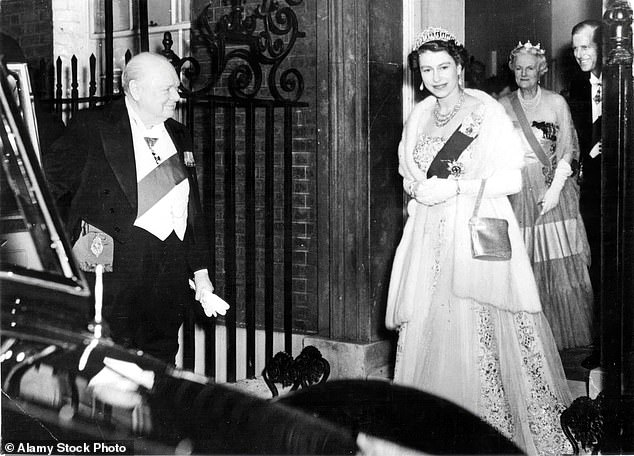
From Winston Churchill to Liz Truss, the historians assess the impact individual leaders had on her 70-year reign
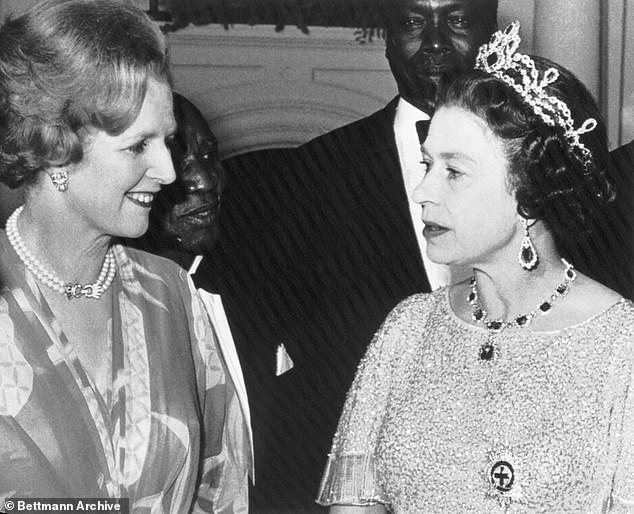
The monarch and the Iron Lady came dangerously close to a public rift in 1986
The article alleged the Queen was displeased with her Prime Minister’s policy approach, signalling a potential break from the political neutrality that had defined the modern royal family.
Under intense scrutiny, the Sunday Times stood by their story. Palace officials soon identified the Queen’s own Press Secretary, Michael Shea, as the source.
In the episode, Hardman and Morton break down the scandal and reveal whether the Queen had actually taken a political stand, or if the article was simply the work of one rogue press secretary.
The bombshell article that ‘desperately hurt’ the Iron Lady
The article, published on July 20, 1986, took aim at both Thatcher’s foreign and domestic policies.
It alleged the Queen viewed the Conservative government as socially divisive and lacking in compassion, particularly regarding Thatcher’s treatment of miners during the year-long strike of 1984-85.
On the world stage, the piece claimed the monarch was dismayed by Thatcher’s hostility towards the Commonwealth and her approval of US air strikes on Colonel Gaddafi’s Libya.
To the public, the article appeared to confirm long-standing rumours of a tense relationship that had swirled since Thatcher assumed power in 1979.
Buckingham Palace immediately released a statement describing the story as ‘entirely without foundation’, insisting the Queen enjoyed ‘a relationship of the closest confidentiality’ with Mrs Thatcher.
‘They really were extraordinary allegations’, Hardman told the podcast.
‘To make out the Queen was actively subverting her Prime Minister and wanted that story out there.’
According to Charles Moore’s authorised biography, Thatcher was ‘desperately hurt’ by the piece, particularly the accusation she was ‘uncaring’.
A mole hunt began inside the Palace. Suspicion quickly fell on Michael Shea, the Queen’s left-leaning Press Secretary.
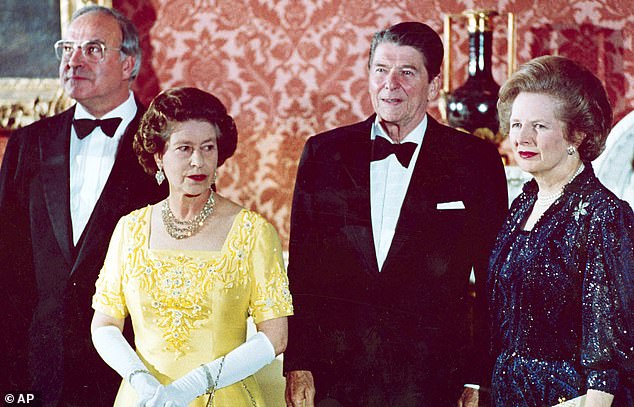
The article, published on July 20, 1986, took aim at both Thatcher’s foreign and domestic policies
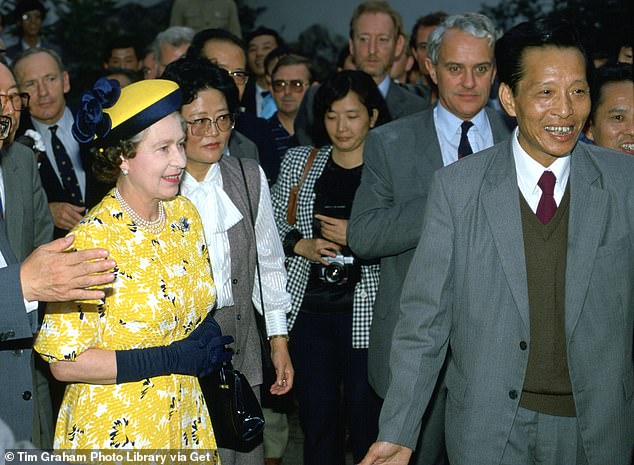
Suspicion quickly fell on Michael Shea (pictured right), the Queen’s left-leaning Press Secretary
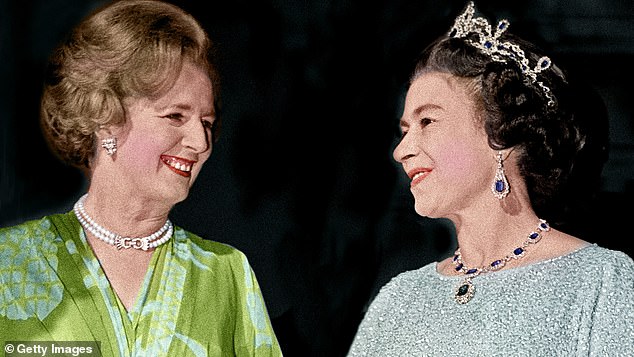
Despite rumours of a rift, the historians describe Thatcher and the Queen’s relationship as one built on mutual respect
Shea admitted to the conversation but denied being accurately represented in the article.
He left royal service in 1987, departing under a cloud less than a year after the controversy.
‘Within a few months, Shea departed’, Morton, writer of the bombshell book, Diana: Her True Story, explained.
‘He wasn’t blamed, in the sense of being sacked, but he was urged to move on and look elsewhere.
‘That was a shame – I really liked Michael. He was very decent Press Secretary, who wrote good books too.’
In a pointed snub, Shea did not receive the knighthood typically bestowed on departing press secretaries, despite nine years of service to the Queen.
Despite rumours of a rift, the historians describe Thatcher and the Queen’s relationship as one built on mutual respect.
Hardman said: ‘Obviously, they had very different temperaments and were from completely different backgrounds.
‘The Queen was not naturally confrontational. Thatcher would have a confrontation with anyone who stood in her way.
‘Thatcher had huge respect for the Queen – it’s overblown I think, the idea they were at loggerheads.’
The Queen later awarded Thatcher one of Britain’s highest honours, the Order of Merit, and attended both her 80th birthday and funeral in 2013.
To discover which Prime Minister the Queen liked the least, search for Queens, Kings and Dastardly Things now, wherever you get your podcasts.
